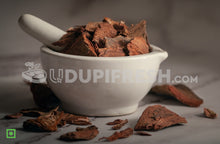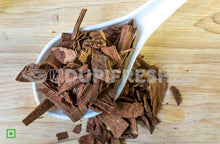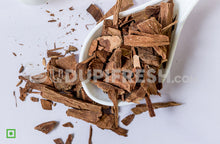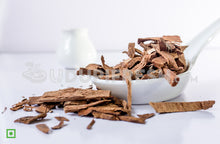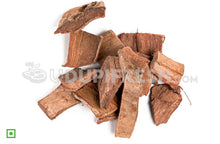
Arjuna Uses and Benefits
Arjuna is best known as one of the foremost Ayurvedic herbs for supporting all areas of heart health. Here are a few of Arjuna's remarkable benefits when it comes to promoting cardiovascular wellness:
- Strong heart function and healthy circulation. Arjuna strengthens and tones the circulatory system, rejuvenates the soft tissues, and promotes the proper function of the heart muscle.
- The healthy flow of blood. Arjuna's properties support the maintenance of healthy cholesterol levels already within the normal range, balanced blood pressure, and proper coagulation in the blood.
- Emotional wellness. Arjuna has also been traditionally used to support the emotional heart, promoting balance for those experiencing grief and sadness. It is said to give courage, strengthen the will, and fortify the heart to accomplish our goals. Furthermore, arjuna has been said to act energetically on the heart chakra, increasing prema bhakti (love and devotion).
Arjuna’s traditional uses and noted benefits extend beyond heart health alone, providing the following areas of support throughout the body:
- Balanced lungs. With its affinity for the chest, arjuna can balance excess kapha and pitta in the lungs for clear, calm breathing.
- Healthy liver and skin. Arjuna helps reduce excess pitta in the liver and skin, supporting proper liver function and a healthy, clear complexion.
- Comfortable digestion. When taken as a tea, arjuna has been used to support healthy digestion.
- Healthy reproductive tissues. Arjuna’s astringency can support healthy and balanced reproductive tissue, known in Ayurveda as Shukra dhatu.
Arjuna in Ayurveda
Ayurveda’s understanding of arjuna’s qualities matches beautifully with the way in which arjuna supports the physiology.
Arjuna is said to have a cooling virya (action), an astringent, bitter, and slightly pungent rasa (taste), and a pungent vipaka (post-digestive effect).
Looking at its benefits, it may be no surprise to learn that Ayurveda considers arjuna to be tridoshic. It is especially balancing to both pitta and kapha, and it can provoke vata if used in excess.
Arjuna also works in a number of dhatus, or tissue layers, including rasa (plasma), rakta (blood), asthi (bone), and shukra (reproductive), as well as two srotas, or channels—the circulatory and reproductive channels.





